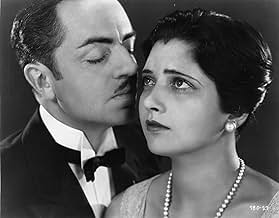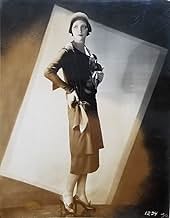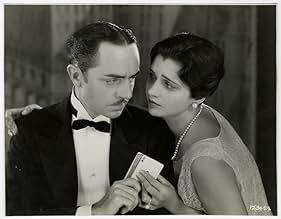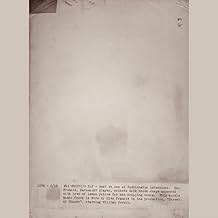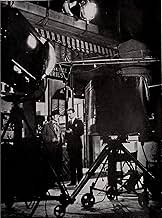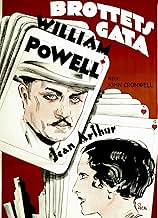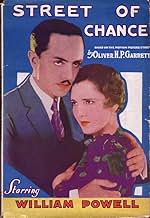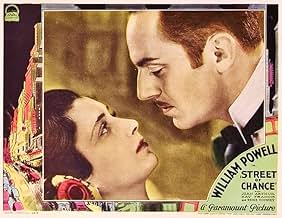Füge eine Handlung in deiner Sprache hinzuA big-time, but honest gambler has to prevent his younger brother from following in his footsteps, and taking up gambling.A big-time, but honest gambler has to prevent his younger brother from following in his footsteps, and taking up gambling.A big-time, but honest gambler has to prevent his younger brother from following in his footsteps, and taking up gambling.
- Für 1 Oscar nominiert
- 3 Gewinne & 1 Nominierung insgesamt
Oscar Apfel
- Bartender
- (Nicht genannt)
G. Pat Collins
- Police officer
- (Nicht genannt)
John Cromwell
- Imbrie
- (Nicht genannt)
Gordon De Main
- Gambler
- (Nicht genannt)
Jack Luden
- Holland House Hotel Clerk
- (Nicht genannt)
William H. O'Brien
- Waiter
- (Nicht genannt)
Broderick O'Farrell
- Gambler
- (Nicht genannt)
Empfohlene Bewertungen
William Powell is on the "Street of Chance" in this 1930 film also starring Kay Francis, Jean Arthur, and Regis Toomey.
I will admit right off that I did not recognize either Arthur or Toomey in this film.
Powell plays "Natural" Davis, a character modeled on the famed gambler Arnold Rothstein. The film portrays a couple of incidents in Rothstein's life, but in my opinion, the character is very loosely based on Rothstein.
Natural Davis is a professional gambler, and as a result, his wife Alma (Kay Francis) is divorcing him. He begs her to stay with him, eventually promising her that he will not only quit gambling, but go away with her on an extended trip..
When is brother Babe (Toomey) comes to town, Natural learns that his wedding gift of $10,000 has been spent gambling. Babe is a big winner and now has $50,000. He's in New York to gamble for $100,000 more so he can buy into a partnership.
Let me pause for a minute. The amounts of money these people are talking about are unbelievable. In 1930, $100,000 was 1,611,946.11 in today's money! Usually in films people are robbing banks for $5,000 or trying to get $50 from someone.
To continue - Natural does not want his brother to pursue the life of a gambler, so he's determined to make sure Babe is cleaned out. He arranges for his associates to help him, joining Babe in a game. It doesn't quite work out as he hoped. In a bind, he has to break his promise to Alma temporarily, but she doesn't buy it.
Powell is natural and very effective, and the film moves quickly, with people picking up their dialogue cues. Often in early talkies, actors were still adjusting to sound. As a result you get pauses between lines of dialogue, and, because of stage training, big gestures and loud voices. Powell has none of this. He's tough yet elegant and sympathetic yet ruthless.
Francis doesn't have much to do as Natural's suffering wife, but she's very good. The rest of the acting is fine, but you could have knocked me over with a feather when I learned that Babe was Regis Toomey and his wife was Jean Arthur! Arthur had none of the characteristics she later developed. Here, she's pure ingenue.
One of the most interesting things about these precode films is that because there is no Hayes code, the ending is not predictable as it is in many later films. The end of this kind of surprised me.
I will admit right off that I did not recognize either Arthur or Toomey in this film.
Powell plays "Natural" Davis, a character modeled on the famed gambler Arnold Rothstein. The film portrays a couple of incidents in Rothstein's life, but in my opinion, the character is very loosely based on Rothstein.
Natural Davis is a professional gambler, and as a result, his wife Alma (Kay Francis) is divorcing him. He begs her to stay with him, eventually promising her that he will not only quit gambling, but go away with her on an extended trip..
When is brother Babe (Toomey) comes to town, Natural learns that his wedding gift of $10,000 has been spent gambling. Babe is a big winner and now has $50,000. He's in New York to gamble for $100,000 more so he can buy into a partnership.
Let me pause for a minute. The amounts of money these people are talking about are unbelievable. In 1930, $100,000 was 1,611,946.11 in today's money! Usually in films people are robbing banks for $5,000 or trying to get $50 from someone.
To continue - Natural does not want his brother to pursue the life of a gambler, so he's determined to make sure Babe is cleaned out. He arranges for his associates to help him, joining Babe in a game. It doesn't quite work out as he hoped. In a bind, he has to break his promise to Alma temporarily, but she doesn't buy it.
Powell is natural and very effective, and the film moves quickly, with people picking up their dialogue cues. Often in early talkies, actors were still adjusting to sound. As a result you get pauses between lines of dialogue, and, because of stage training, big gestures and loud voices. Powell has none of this. He's tough yet elegant and sympathetic yet ruthless.
Francis doesn't have much to do as Natural's suffering wife, but she's very good. The rest of the acting is fine, but you could have knocked me over with a feather when I learned that Babe was Regis Toomey and his wife was Jean Arthur! Arthur had none of the characteristics she later developed. Here, she's pure ingenue.
One of the most interesting things about these precode films is that because there is no Hayes code, the ending is not predictable as it is in many later films. The end of this kind of surprised me.
... with "The Czar of Broadway" being a different film made in the same year loosely based on the famous gambler's life.
John Marsden (William Powell) is a big time professional gambler who goes by the name "Natural Davis" when gambling. He has an office where he is supposed to be buying and selling bonds that acts as a front. John has a baby brother "Babe" (Regis Toomey) who lives on the west coast and who has very recently married Judith (Jean Arthur). They have come to New York City on their honeymoon. What Judith doesn't know is that Babe has run up John's wedding gift to them of ten thousand dollars to fifty thousand dollars by gambling and intends to continue gambling in New York to get the 150K that he needs to buy into the partnership of a firm. At the same time, John's wife Alma (Kay Francis) has served him with divorce papers after a six month separation, and she will not consider reconciling unless John retires as a professional gambler and leaves town with her.
John agrees to stop gambling and leave town with his wife, but shortly thereafter finds out that his brother is getting way in over his head gambling with the kinds of hoods who work along Broadway, and he's put in the position of either having to stop his brother and save him from the path he's been on all of these years, or have one last chance with his wife. Complications ensue.
William Powell played villains through 1928 at Paramount as his looks - if you knew nothing about his voice - allow him to look rather menacing. This was one of those films in which he was playing a bigger role than the types he had in the silent era, yet he is still playing a rather dark character. In spite of some of his more dastardly deeds, though, he is a relatable and even sympathetic protagonist.
I wish this film was better known, and I'd recommend this one. It has plenty of atmosphere - it's almost noirish in style and substance rather than a precode - and it is a good showcase for the talent of the main players, although Jean Arthur is almost unrecognizable here.
John Marsden (William Powell) is a big time professional gambler who goes by the name "Natural Davis" when gambling. He has an office where he is supposed to be buying and selling bonds that acts as a front. John has a baby brother "Babe" (Regis Toomey) who lives on the west coast and who has very recently married Judith (Jean Arthur). They have come to New York City on their honeymoon. What Judith doesn't know is that Babe has run up John's wedding gift to them of ten thousand dollars to fifty thousand dollars by gambling and intends to continue gambling in New York to get the 150K that he needs to buy into the partnership of a firm. At the same time, John's wife Alma (Kay Francis) has served him with divorce papers after a six month separation, and she will not consider reconciling unless John retires as a professional gambler and leaves town with her.
John agrees to stop gambling and leave town with his wife, but shortly thereafter finds out that his brother is getting way in over his head gambling with the kinds of hoods who work along Broadway, and he's put in the position of either having to stop his brother and save him from the path he's been on all of these years, or have one last chance with his wife. Complications ensue.
William Powell played villains through 1928 at Paramount as his looks - if you knew nothing about his voice - allow him to look rather menacing. This was one of those films in which he was playing a bigger role than the types he had in the silent era, yet he is still playing a rather dark character. In spite of some of his more dastardly deeds, though, he is a relatable and even sympathetic protagonist.
I wish this film was better known, and I'd recommend this one. It has plenty of atmosphere - it's almost noirish in style and substance rather than a precode - and it is a good showcase for the talent of the main players, although Jean Arthur is almost unrecognizable here.
In this film, the always debonair William Powell plays a businessman leading a double life as "Natural" Davis, an elite gambler with a penchant for winning because he "knows the percentages." He deals with gangsters and can summon up toughness when he needs to, but he also has personal integrity and treats people with fairness, at least, per his world's code. He's thus another example the common (and rather dubious) film trope of a guy who's operating outside the law, but lives by a moral code and is established as virtuous anyway. Here that's somehow true even when we see him order another gambler to be murdered because he's caught him stealing from him. Naturally, the violence isn't depicted.
Trouble comes to Natural Davis in two forms: (1) his wife (Kay Francis) is fed up with his late nights and threatens to call it quits, and (2) his little brother (Regis Toomey) comes to town looking to gamble himself, not knowing that the legendary Natural Davis is his own brother. Natural tries to do the right thing on both fronts, that is, to make drastic changes to preserve his marriage, and to attempt to dissuade his brother from the sordid life of gambling. His idea is a little trickery to do the latter, leading to a pretty fine scene of the brothers in a high stakes poker game together.
The film is certainly stronger towards the end, but it's a little mechanical getting there, stretching its simplistic plot out to fill the runtime. It's not clear how this nominated for a Best Writing Oscar, but 1930 was not a particularly strong year for films, with filmmakers still adapting to sound (the following years up to the end of the pre-Code era are certainly better). Regardless, from where I sit, Kay Francis and Jean Arthur (who plays the brother's wife) were largely wasted, their characters mostly just planets in orbit around Powell's. There is drama leading to a great final line from Powell, but the story line for the brother was unsatisfactory because it seemed far too tidy (wow, cured just like that, despite the temptation on the train!).
With that said, the film is worth seeing if you're a fan of the stars, and there were also various little things from the era that caught my eye. Mostly these are shots in New York, including the light streaming through the windows of Grand Central Station, and the big billboards for James J. Walker, a Tammany Hall mayor who was forced to resign a couple of years later. I also liked the neon sign advertising Spider-Web Hosiery in the background of the scene Powell has with Arthur. Lastly, it was interesting to see the swastika on some of the poker chips, but while the Nazis had already appropriated the symbol by this time, it appears these types of chips had been made for decades in America, and mercifully no fascist sympathies were being subtly expressed.
Trouble comes to Natural Davis in two forms: (1) his wife (Kay Francis) is fed up with his late nights and threatens to call it quits, and (2) his little brother (Regis Toomey) comes to town looking to gamble himself, not knowing that the legendary Natural Davis is his own brother. Natural tries to do the right thing on both fronts, that is, to make drastic changes to preserve his marriage, and to attempt to dissuade his brother from the sordid life of gambling. His idea is a little trickery to do the latter, leading to a pretty fine scene of the brothers in a high stakes poker game together.
The film is certainly stronger towards the end, but it's a little mechanical getting there, stretching its simplistic plot out to fill the runtime. It's not clear how this nominated for a Best Writing Oscar, but 1930 was not a particularly strong year for films, with filmmakers still adapting to sound (the following years up to the end of the pre-Code era are certainly better). Regardless, from where I sit, Kay Francis and Jean Arthur (who plays the brother's wife) were largely wasted, their characters mostly just planets in orbit around Powell's. There is drama leading to a great final line from Powell, but the story line for the brother was unsatisfactory because it seemed far too tidy (wow, cured just like that, despite the temptation on the train!).
With that said, the film is worth seeing if you're a fan of the stars, and there were also various little things from the era that caught my eye. Mostly these are shots in New York, including the light streaming through the windows of Grand Central Station, and the big billboards for James J. Walker, a Tammany Hall mayor who was forced to resign a couple of years later. I also liked the neon sign advertising Spider-Web Hosiery in the background of the scene Powell has with Arthur. Lastly, it was interesting to see the swastika on some of the poker chips, but while the Nazis had already appropriated the symbol by this time, it appears these types of chips had been made for decades in America, and mercifully no fascist sympathies were being subtly expressed.
In watching the early Paramount talkies with William Powell it never ceases to amaze that Powell stage trained voice that he had apparently knew instinctively how to modulate for the new medium of talking motion pictures. It was why he was able to have three successful Philo Vance films and Street Of Chance is in the same mode.
Powell's character of 'Natural' Davis is of course modeled on the legendary Arnold Rothstein who gambled with quite a bit more than just games of chance. This is the life Powell has chosen for himself and he and wife Kay Francis are content. He's the best at what he does in a business filled with uncertainty.
But this is not a life he wants for his brother Regis Toomey who comes into town wanting to try the gambling world and be the best like 'Natural Davis. That's not what Powell wants for his kid brother, he wants Toomey to be and stay respectable. Tragedy results when Powell tries some desperate means to keep Toomey from the life.
Powell and Francis are at the top of their game and Toomey registers well as the eager younger brother. Jean Arthur is here as well, but she's really not the Jean Arthur who developed later on in those Thirties screwball comedies, she took quite a while to develop as a screen personality.
Street Of Chance shows William Powell at really good advantage in a carefully delineated role. For his fans definitely catch this one.
Powell's character of 'Natural' Davis is of course modeled on the legendary Arnold Rothstein who gambled with quite a bit more than just games of chance. This is the life Powell has chosen for himself and he and wife Kay Francis are content. He's the best at what he does in a business filled with uncertainty.
But this is not a life he wants for his brother Regis Toomey who comes into town wanting to try the gambling world and be the best like 'Natural Davis. That's not what Powell wants for his kid brother, he wants Toomey to be and stay respectable. Tragedy results when Powell tries some desperate means to keep Toomey from the life.
Powell and Francis are at the top of their game and Toomey registers well as the eager younger brother. Jean Arthur is here as well, but she's really not the Jean Arthur who developed later on in those Thirties screwball comedies, she took quite a while to develop as a screen personality.
Street Of Chance shows William Powell at really good advantage in a carefully delineated role. For his fans definitely catch this one.
'Natural' Davis (William Powell) is a respected gambler who follows a ruthless code of honour with those who cheat against him. His wife Alma (Kay Francis) wants to divorce him because of his addiction and lifestyle but they agree on a reconciliation and 2nd honeymoon together and 'Natural' promises to give up gambling. However, his plans change when his brother 'Babe' (Regis Toomey) arrives in town...............
This is a well acted film with William Powell very good in the lead role and Kay Francis a little irritating at times with her facial over-emoting. However, Powell carries the film and pulls it into the "good" category. It has a slightly downbeat ending.
This is a well acted film with William Powell very good in the lead role and Kay Francis a little irritating at times with her facial over-emoting. However, Powell carries the film and pulls it into the "good" category. It has a slightly downbeat ending.
Wusstest du schon
- WissenswertesThe Alfred Hitchcock Hour (1962-1965) remade this story under the title of "A Piece of the Action" starring Gig Young and Robert Redford. It was the premier program of the show.
- VerbindungenFeatured in David O. Selznick: 'Your New Producer' (1935)
Top-Auswahl
Melde dich zum Bewerten an und greife auf die Watchlist für personalisierte Empfehlungen zu.
- How long is Street of Chance?Powered by Alexa
Details
- Erscheinungsdatum
- Herkunftsland
- Sprache
- Auch bekannt als
- Brottets gata
- Drehorte
- Produktionsfirma
- Weitere beteiligte Unternehmen bei IMDbPro anzeigen
- Laufzeit
- 1 Std. 15 Min.(75 min)
- Farbe
- Seitenverhältnis
- 1.20 : 1
Zu dieser Seite beitragen
Bearbeitung vorschlagen oder fehlenden Inhalt hinzufügen

